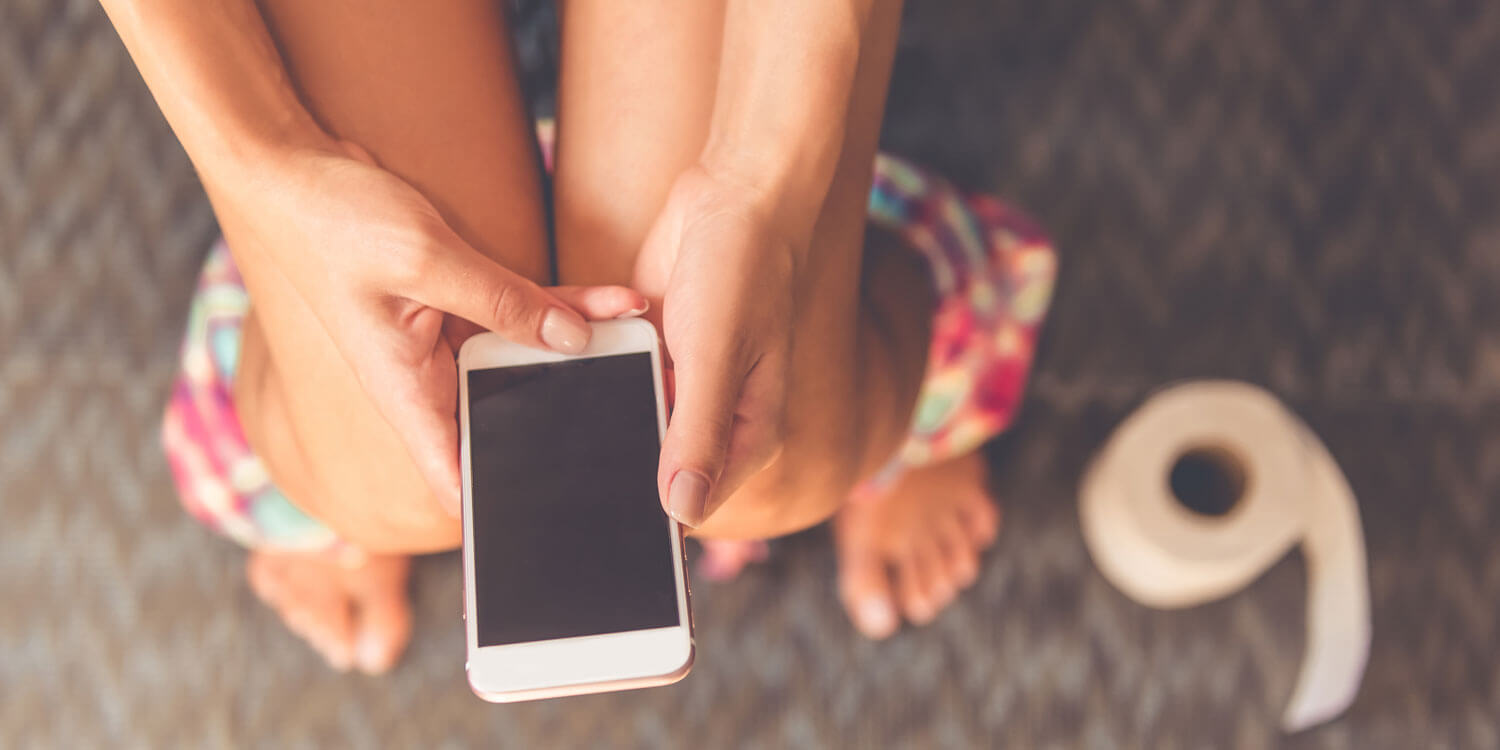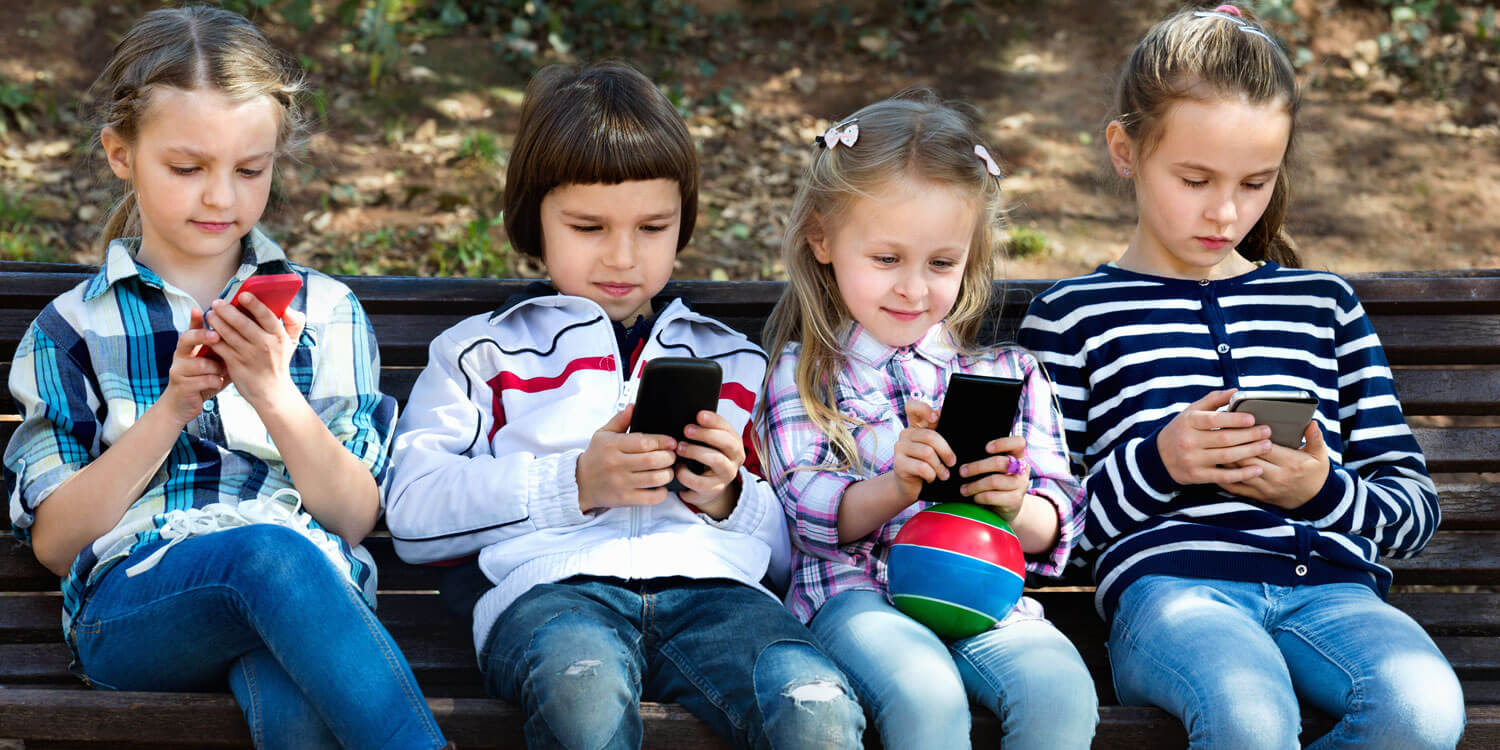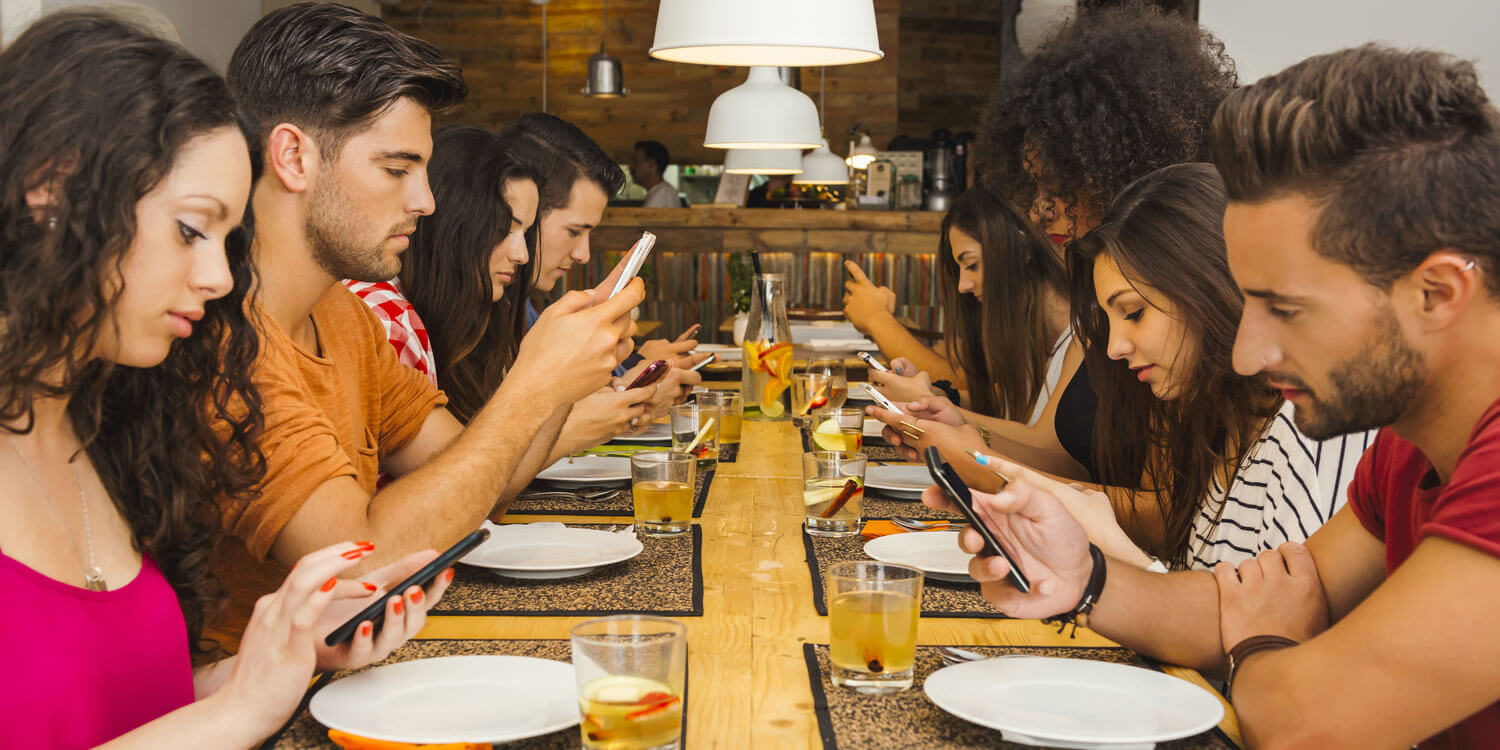Smartphones determine our everyday life. Always. More. Everywhere people stare at their mobile phones. Often in the middle of conversations with other people. A study by the University of Bonn in Germany has shown that mobile phone users switch on their smartphones 88 times a day on average and unlock their mobile phones 55 times a day. According to a survey by the German Digital Economy Association (BVDW), smartphones are used by people between the ages of 16 and 34 for around 80 minutes a day.
Did Steve Jobs suspect this when he introduced the iPhone as the first smartphone in January 2008? In September 2018, according to a DPA report, children in Hamburg even demonstrated against their parents’ excessive use of mobile phones. According to the motto: “Play with me and not with your mobile phones”.
In Silicon Valley in the USA, there are even the first digital detox camps in which stressed people want and should learn to manage without smartphones, mobile phones, computers and the Internet.
Of course, it is also true that people have always been afraid of new things. For example, when letterpress printing was invented: The parents were afraid that the children would just stare at the books and do nothing else. Nowadays many parents would probably be happy if their children would read a book! However, it must also be taken into account that parents are role models for their children. Children take a close look at what their parents do – and how they do it.
By the way, the prosperity of the world can be seen, among other things, in the development of telecommunications. The richest countries of the world such as Qatar, the United Arab Emirates, Bahrain, Macao or Hong Kong have the highest mobile phone usage worldwide.
The fact is that mobile phones are part of our everyday lives. Whether for pleasure, boredom or sometimes for duty. Games, social networks, communication, online shopping, photo & video on the smartphone – who doesn’t pick up a mobile phone when it’s a quiet moment? Unfortunately, often completely irrational, like a reflex.
Mobile phone obsession is now even a recognized disease that affects between 2% and 3% of all people.
For less smartphone stress & against mobile phone obession: Why don’t you put your mobile phone away – not as easy as you think
So let’s face it, who doesn’t spend too much time on a cell phone? Would you like to check out WhatsApp or Facebook? But what is too much and what is right? One hour a day? Two or even four hours? When is one addicted and dependent on the mobile phone? Do you want answers?
It is generally recommended to set up so-called offline times on a daily basis: When is it possible to go without a mobile phone for a while? Or don’t take your mobile phone with you when you leave the house.
Become aware of your mobile phone consumption and check how you feel about it! Especially at night you should switch off your mobile phone and certainly not put it next to your bed. By the way, it is recommended not to touch a mobile phone, tablet or computer two hours before going to bed. The blue light component in screens inhibits the release of the sleep hormone melatonin. In addition, the eyes are quickly irritated, tired or even dehydrated by the use of mobile phones.
Try to get a healthy use of your smartphone! You don’t have to buy a key cell phone immediately to avoid cell phone obsession!

Use an app to measure the amount of time you spend on your mobile phone per day.
Check how much time you really spend on your smartphone each day. Since iOS 12, you can find an overview on every Apple device. Under the settings you will find the menu item “Screen time”. It’s worth looking at the overview. Don’t be afraid!
Android also offers several apps like “Quality Time”, “AppDetox” or “Space”, which display about the same functionality. Use the information of these apps and think about whether you really want to consume them.
If you are no longer able to maintain your social contacts or to work/study/go to school because of the mobile phone consumption, you should urgently contact an advice centre for computer and internet addicts. Don’t let digital burnout happen!
A first step may be to delete the apps you use the most. Or simply switch off the notifications on your mobile phone. If you don’t get any information about a new WhatsApp, maybe you won’t look it up as often. Mobile phone addiction doesn’t mean watching a video in between. But you can prevent mobile phone addiction.
Funnily enough, there are many apps that prevent mobile phone addiction. Among other things, apps from the area of sports and health are to be mentioned. In addition, these apps are quite popular.
WhatsApp, Facebook Messenger, Twitter, Instagram, Snapchat, Pokémon Go, Spotify & Co.
But how many hours of consumption per day are, please, normal in the social media? That, too, cannot be answered in general terms. If you cultivate the contacts you have with Messenger in real life, you shouldn’t worry. However, you can consider whether it makes sense to write an hour back and forth with one person. Wouldn’t it be better just to meet or talk on the phone? So news can be exchanged much nicer in the personal contact! Sort of a newsletter Face2Face instead of surfing in the online shop :-).
In addition, according to ophthalmologists, excessive use of smartphones, tablets and computers in early childhood should lead to more short-sightedness in young people more quickly! In recent years, the number of short-sighted young people in industrialized countries has grown significantly. In Germany, the rate among young adults is now almost 50 percent. In Asian countries, the proportion of those who need glasses for the rest of their lives is already over 90 percent. These figures are mainly due to the very early and intensive use of PCs, smartphones and tablets. The smaller the display, the more strain our eyes usually put on it. This has consequences for our entire lives!

What fascinates people about smartphones?
In principle, a mobile phone offers almost everything: Find vouchers, listen to music, play games, information and news, photos – there is an app for every topic and a need is quickly satisfied on the mobile phone. Many even look for their next partner via app or for products that other users recommend! Especially with games there is a great satisfaction in the course of time again and again through successes, for example ascents in the level. This triggers chemical processes in the human brain and one feels comfortable. Our brain gets used to the happiness hormone dopamine and wants more and more of it. Parents should know that this is how an addiction develops. But one video after the other can also fire up mobile phone obsession.
By the way: There are already Apps as a replacement for a therapy against mobile phone obsession, such as Hypnobeep. However, these often cost hundreds of euros and experts at least doubt the benefit. But for your own health’s sake, you could try the test and simply try not to be constantly on the Internet with your smartphone. Come on, who dares, who would report for such an experiment? There is one back to life!
Would you like more information about mobile phone obsession? Here are news from research
About a year ago, the Clinic for Child and Adolescent Psychiatry and Psychotherapy at the University Hospital Carl Gustav Carus Dresden (Germany) expanded its range of therapies with a new special outpatient clinic for addictions. Here not only underage children and young people find assistance, who have an addiction problem with drugs, alcohol or gambling – it concerns also mobile phone addiction. Interesting approach of the Dresden addiction therapists: They assume that two thirds of all children and adolescents have a secondary addiction disorder. This means that other child and adolescent psychiatric disorders such as social behaviour disorders, ADD or ADHD, trauma disorder, depression or anxiety are also at play.
Did you know that 12- to 25-year-olds in Germany spend an average of three hours a day online? At the weekend it is an average of four hours. And that is not yet the group of those children and young people, who have a problematic mobile phone behavior! These are clearly longer at the PC or at the mobile phone on the way. And where is the contact with other children? If you want to help your children use computers and smartphones sensibly, you can take time together with your offspring to put an end to mobile phone addiction.
Detect mobile phone obsession with the Menthal App for Android
Can an app warn against cell phone obsession? The Menthal project of the University of Bonn wants to achieve this goal. The results of studies in the run-up to the publication of the app had already given some food for thought. According to this, average users picked up their smartphones every twelve minutes and activated them around 80 times a day. With social networks such as Facebook or Whattsapp, (often hour-long) games and further use, many hours a day came together. That’s a lot of time. On average, however, the mobile phone was only used for around 8 minutes a day.
Any more questions? According to the Bonn researchers, excessive mobile phone consumption can lead to neglecting daily tasks and the social environment. And if the mobile phone is not used, withdrawal symptoms can even occur. The Menthal app is not only intended to investigate the question of mobile phone addiction, but also to investigate a connection between too much mobile phone use and depression. Menthal is not yet available for IOS and is currently only available for Android smartphones: https://menthal.org
Just switch off: often not so easy at all
The researchers from IfADo – Institute for Work Research at the TU Dortmund (Germany) – recommend “Simply switch off”. And by that they also mean the smartphone. However, many find it difficult to do so, especially in the professional field, and even after work they still read official e-mails or make telephone calls to colleagues and superiors. It would be so much more sensible to spend your free time with meaningful activities instead of with mobile phone addiction – for example, when playing sports or with friends, the scientists recommend.
Professional cell phone obsession: Who is always available burdens the partnership
Always being available – this can also be a kind of mobile phone obsession. As a recent study by the Hans Böckler Foundation (Germany) has shown, the relationship suffers noticeably if you always want or have to be reachable professionally. According to study results approximately a third (36 per cent) of the leading employees concerns itself also in the spare time with business communication, with simple workers it is even 38 per cent. Almost every fifth person in both groups says that they feel obliged to always be on – or even to be obliged to be on by their boss.
The occupational psychologists from IfADo (Germany) have found out that we are always able to be reached on the move and that our health is also affected by this. The consequence of professional mobile phone obsession: strong exhaustion.

